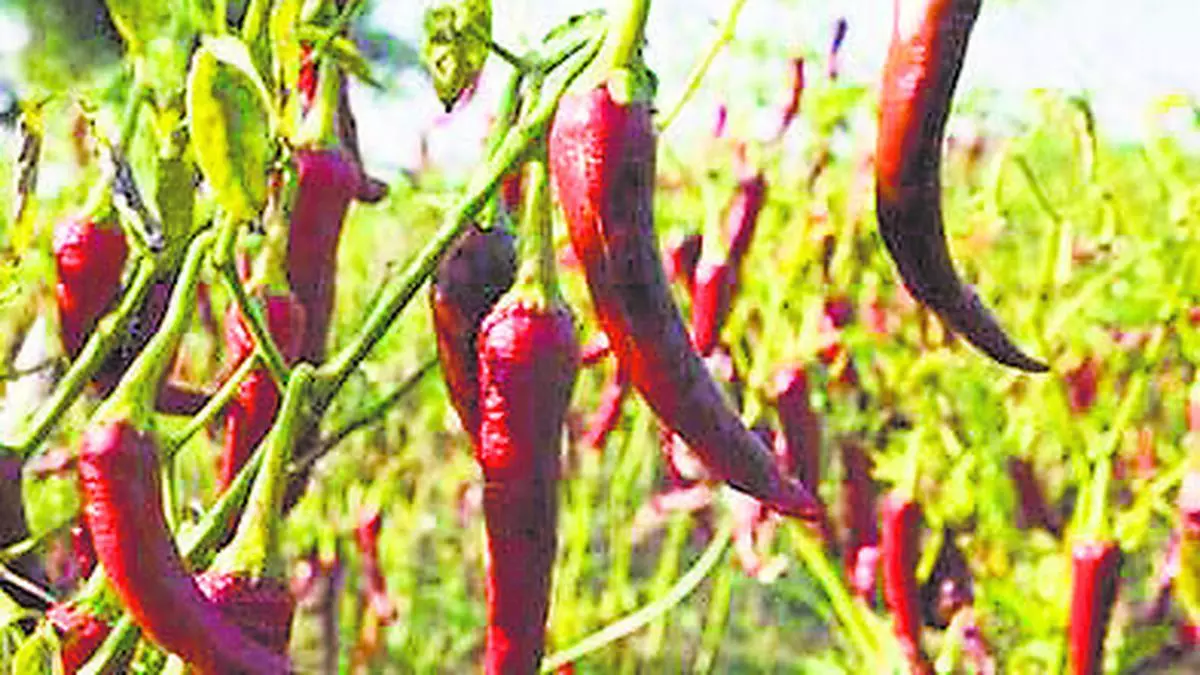Taiwanese firm WorldVeg says black thrips in chillis can be tamed
With black thrip infestation continuing to devastate chilli crop, here’s a global push to address the menace that is causing extensive losses to chilli farmers in the last three-four years. The virulent pest (thrips parvispinus) spreads like wildfire and can cause extensive damage to the crop, leaving the farmers in huge losses.
Taiwanese organisation World Vegetable Centre has developed nine lines of chilli varieties that can withstand black thrips infestation.
The organisation, which has its India headquarters in Hyderabad, has demonstrated these lines to a group of seed producers in Khammam, which is one of the leading chilli producing areas in the country.
More than 50 private seed companies associated with the Asia and Pacific Seed Association (APSA), a private seed industry association, were present at the demonstration held on Thursday.
Andhra Pradesh and Telangana account for one-third of the two million tonnes that the country produces annually. But the chilli production in the two States has been hit in the last three-four years with black thrips devastating the crop.
Artificial infestation
Black thrips, also known as Nalla Tamara Purugu in Telugu, was first reported in India in in 2015 and over the past three years have caused widespread damage to chilli crops in Andhra Pradesh, Telangana, Karnataka, Assam, Chhattisgarh, Gujarat, Kerala, Maharashtra, Odisha, and Tamil Nadu.
“Through extensive research and field trials, we have identified nine tolerant lines that show promise in combating the devastating effects of black thrips on chilli crops.
The resistant and tolerant lines were identified through artificial infestation experiments at the WorldVeg headquarters in Taiwan.
“They are now being evaluated for their performance under field conditions in Hyderabad,” a WorldVeg executive told businessline.
In order to broad base the fight against black thrips, APSA and WorldVeg Breeding Consortium launched a special project called ‘Developing Host Resistance to Thrips in Chilli’.
“The project aims to address critical questions surrounding thrips resistance, including information on thrips diversity, to support breeding resistant cultivars to minimise losses for smallholder farmers in India and worldwide,” he said.
“Through repeated experimentation in controlled conditions and this field trial validation, we are confident that we have high levels of tolerance to multiple species of thrips, including black Thrips,” Derek W. Barchenger – Scientist – Pepper Breeding, World Vegetable Center, Tainan, Taiwan, said in a statement.
“These tolerant lines provide a strong foundation for a recurrent selection breeding program, which will facilitate the development of highly resistant chilli cultivar and to understand the genetic basis for resistance molecular marker development and gene characterization,” he said.
The molecular markers developed in this project will allow for more efficient and effective breeding for host resistance, and ultimately limiting farmer losses.
Manoj Kumar N, Associate scientist (Pepper Breeding) at World Vegetable Center – South Asia/Central Asia, said the company’s research identified chili lines demonstrating “remarkable” tolerance to black thrips. “Through advanced breeding techniques, our goal is to unveil the intricate genetic landscape underlying resistance and further develop host resistance with the objective of minimising losses and fortifying the resilience of chili crops,” he said.
